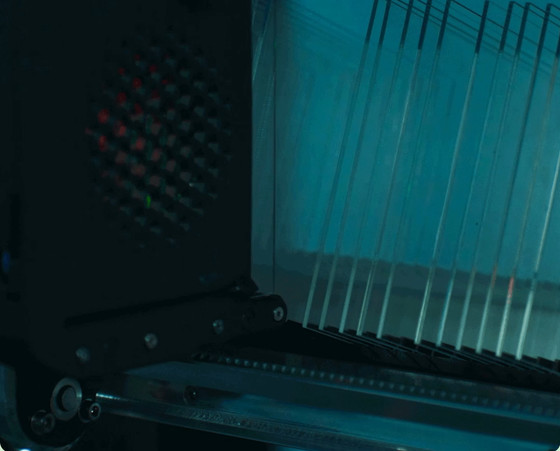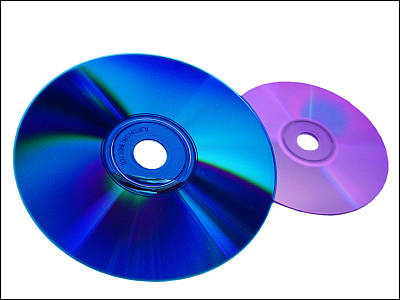Microsoft's 'Project Silica', which stores data on glass plates, has grown to 7 TB, which is more than 100 times the storage capacity, and 10,000 years, which is 10 times the storage period

Project Silica is a Microsoft project that fundamentally rethinks storage system architecture and technology, with the goal of storing over 100 zettabytes of data in the cloud by 2023. In 2019, we
Sealed in glass – Microsoft Unlocked
https://unlocked.microsoft.com/sealed-in-glass/

Microsoft's glass data storage system saves terabytes for 10,000 years
https://newatlas.com/computers/microsoft-project-silica-glass-data-storage-10000-years/
Books and traditional optical media can be severely damaged by water or fire, and valuable historical records can be lost. In addition, the hard disks used in cloud services wear out in 3 to 5 years, and the magnetic tapes wear out in 5 to 7 years, so they need to be replaced regularly, resulting in huge maintenance costs. Therefore, Project Silica encodes data into the glass by creating nanoscale layers inside the hard silica glass. Microsoft claims that in addition to being resistant to heat and water and not being damaged by magnetic force, glass is also less likely to deteriorate and can be written to in an instant, leading to lower costs.
In 2019, as a proof-of-concept experiment for Project Silica, film data from the movie 'Superman' with a file size of 75.6 GB was saved on a palm-sized quartz glass plate measuring 75 mm x 75 mm x 2 mm. And we succeeded in reloading Superman's film data from the storage on the glass plate.
Microsoft successfully archives the movie ``Superman'' on a palm-sized glass plate - GIGAZINE

In October 2023, Microsoft announced that it will now be possible to store several terabytes of data on a small glass plate. Elire, a venture group working with Microsoft Research's Project Silica team, provided technology for the Global Music Vault 's work, which aims to protect the world's musical heritage. As a result, it seems that they succeeded in storing approximately 1.75 million songs on a palm-sized glass plate, which is equivalent to the music released in 13 years.
Ant Roustron, a Microsoft engineer participating in Project Silica, said, ``Magnetic technology has a finite lifespan, so we have to keep copying it onto new generations of media.Hard disk drives are said to have a lifespan of five years.'' A tape might last 10 years, but once it expires, you'll have to make copies. And, frankly, when you think about all the energy and resources we're using. And that's difficult and highly unsustainable.' 'Project Silica's technology allows you to write data knowing that it will not be modified and is safe,' said Richard Black, Research Director at Project Silica. 'This is an important step forward.'
Data is stored on glass through a four-step process. First, data is written onto the glass plate using an ultrafast femtosecond laser.

A computer-controlled microscope then reads the data from the glass plate.

In the third stage, data decoding processing is performed. And finally, store the glass plate with the data in the library. Once data is stored on the glass, it can be read but cannot be changed.

Technology media New Atlas said of Project Silica, ``The idea is interesting, but I have to admit that it feels more like a publicity stunt than a serious conservation effort.'' “Even if the data is safe, what about the reader, which is a sensitive laser? Even if an explorer 10,000 years from now stumbles upon the ruins of the Global Music Vault, it would not be possible to display the crystal artifacts in a museum. 'You may only be able to listen to music, but you may not be able to hear music.'
However, in addition, a significant short-term benefit of glass-based data storage is that glass-based data storage significantly reduces the enormous amount of electricity that many data centers consume in order to stay online and keep them cool. 'The glass plates are stable at room temperature and require no energy to retain data,' says New Atlas.
Related Posts:
in Note, Posted by log1e_dh






